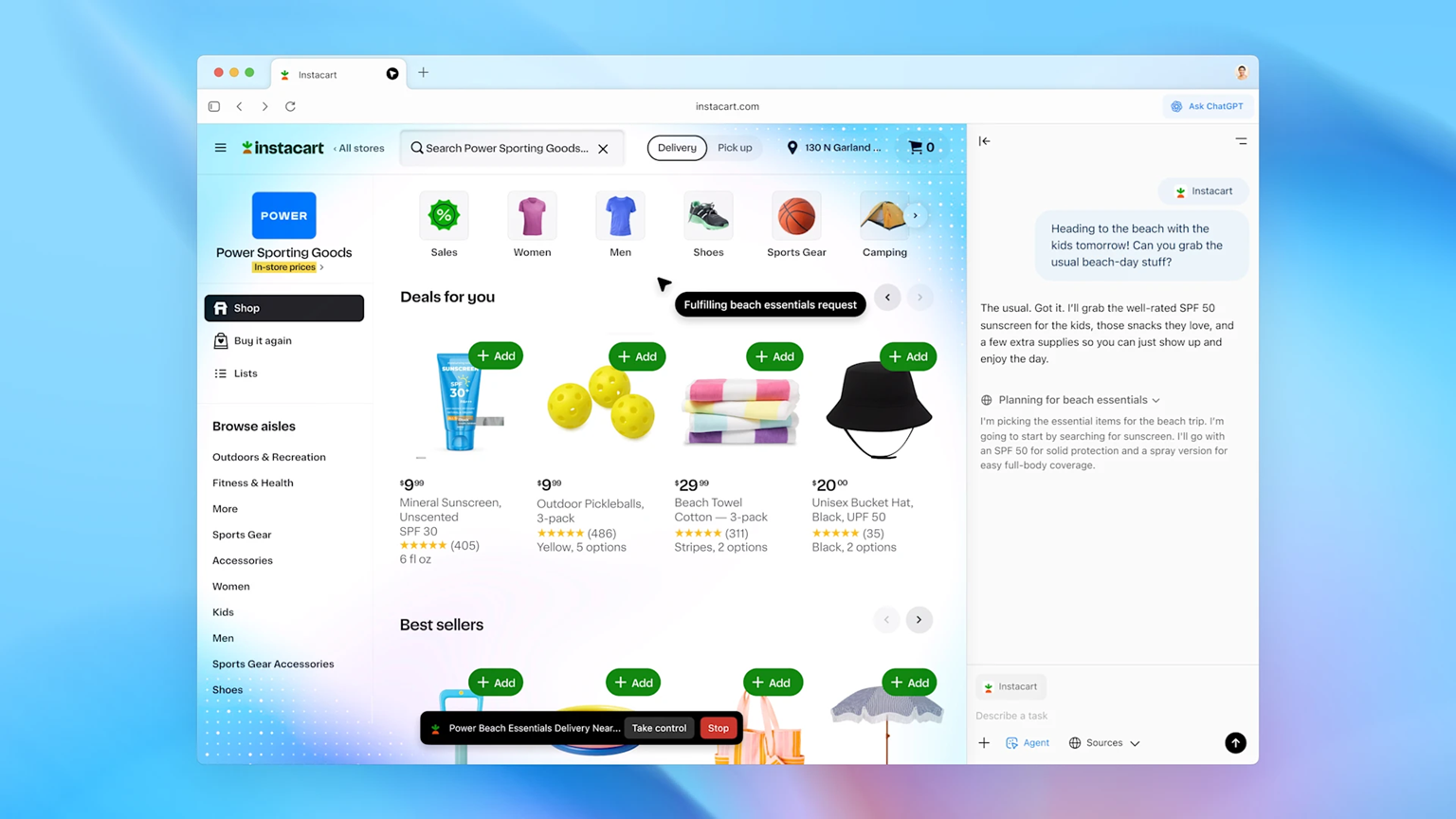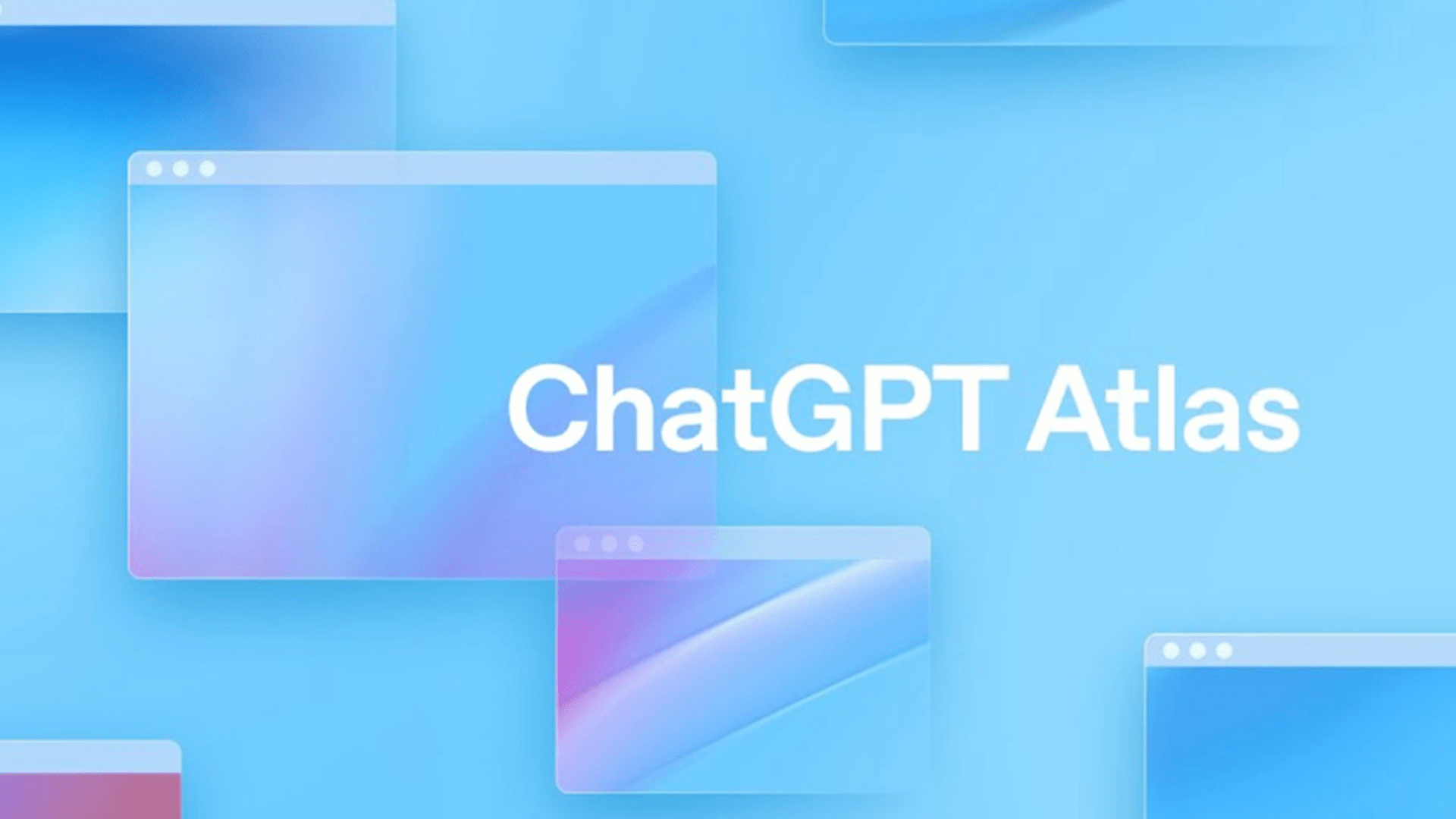OpenAI’s new ChatGPT Atlas browser made a splash this week with its AI-driven experience. But it only took a few days for Adam Fry, Atlas’ product manager, to share a “post-launch fix list” to X. The list covers features that many power users have come to expect from web browsers, as well as upgrades on the AI side. It’s a pretty long list, as you can see below, but some items are more important than others and could make or break Atlas’ success as it competes with Chrome and its newer AI-based rivals.
We’ve received incredible feedback since yesterday’s launch of our new browser, ChatGPT Atlas. We really strive to create the best product for all of you, and since launch the team has been working to make it better. In the spirit of transparency, these are the very… pic.twitter.com/UzQSqcxwpjOctober 23, 2025
1. Tab groups and profiles
First on the list are the options for grouping tabs and switching between profiles. These are things that many desktop browser users take for granted. Tab groups let you group related pages into a single collapsible set, while profile switching separates bookmarks, history, and context.
Since many people have separate profiles for work and personal use, this is more than a benefit; it is a necessity. For now, Atlas offers the basic Chrome experience, but it lacks the fine-grained control many might prefer for their tabs. If Atlas can handle this reliably, it will reduce the burden of browser chaos that many of us who open 50 tabs at a time face on a daily basis.
2. Shortcuts and bookmarks
Fry’s list mentions an “overflowing favorites menu” and a list of shortcuts. For users, this means you won’t have to endlessly scroll through bookmarks in the toolbar. Instead, the extras will turn into a nice overflow. And a shortcut menu, as the name suggests, provides quicker access to frequently used functions, whether it’s opening the chat sidebar, saving tabs, or launching agent mode. This type of UI tweaking isn’t a big show, but it helps make Atla more than just a demo. It’s the kind of adjustment that you don’t notice when it’s working, but you definitely notice when it’s missing.
ChatGPT Atlas is a web browser, but it’s the AI elements that really set it apart. Fry clarified that there would be upgrades to the sidebar where the AI assistant resides. Soon you’ll see a template selector allowing you to choose which version of ChatGPT you want to interact with, as well as access ChatGPT’s projects features.
The browser will also allow users to join multiple tabs in the composer and clean up “@mentions” to provide more and better context to your requests. This way, when working on multiple browser tabs, such as searching for an article or planning a trip, you can link multiple tabs into a single task in the sidebar, choose the template best suited to the task, and maintain context via attachments.
This is a notable difference from some AI browser experiences that are limited to a single chat window. Atlas’ promise is a more tightly integrated fusion of browser and AI assistant, and you’ll have to stick less of it into ChatGPT.
4. Fast Agents

The powerful Agent mode for ChatGPT Atlas allows AI to open tabs, click buttons, fill out forms, and act on a user’s behalf. Fry’s list promises that it will soon include faster first responses and fewer missed action triggers, while being better at waiting when it should and smoother overall animation. Basically, you won’t need to hover over the agent as much to make sure it’s working the way you want it to.
5. Saved passwords, blocked ads
One of the most browser-specific items on Fry’s list might appeal most to casual users: an opt-in ad blocker and smoother handling of captive portals – the public Wi-Fi connections that can break a browser. Although it was designed around AI, Atlas launched without these niceties at first.
The list also included fixes for password manager integrations. By naming them explicitly, OpenAI appears to be responding to requests from people to use Atlas in every way they use their current browser. Fewer browser crashes are always a good selling point.
There are plenty of other items on Fry’s list, too. They all hint at ambitious plans for applications within Atlas and greater integration with existing third-party applications and services. While Fry didn’t promise a particular timeline, the very fact of the announcement makes it clear that Atlas will change as quickly as possible and that OpenAI is listening. And if Atlas gains ground, all the others, From Google Gemini to Opera Neon to Perplexity’s Comet browser, they need to catch up.
However, any major bugs in upgrades will cause problems. Some users will be wary of the AI in each tab due to privacy concerns, although the ad blocker and profile support can help alleviate these concerns.
The average person may not care about model architecture or company strategy, but they do care about how their browser works. These fixes show that OpenAI recognizes this fact and is quickly adapting.
Follow TechRadar on Google News And add us as your favorite source to get our news, reviews and expert opinions in your feeds. Make sure to click the Follow button!
And of course you can too follow TechRadar on TikTok for news, reviews, unboxings in video form and receive regular updates from us on WhatsApp Also.




